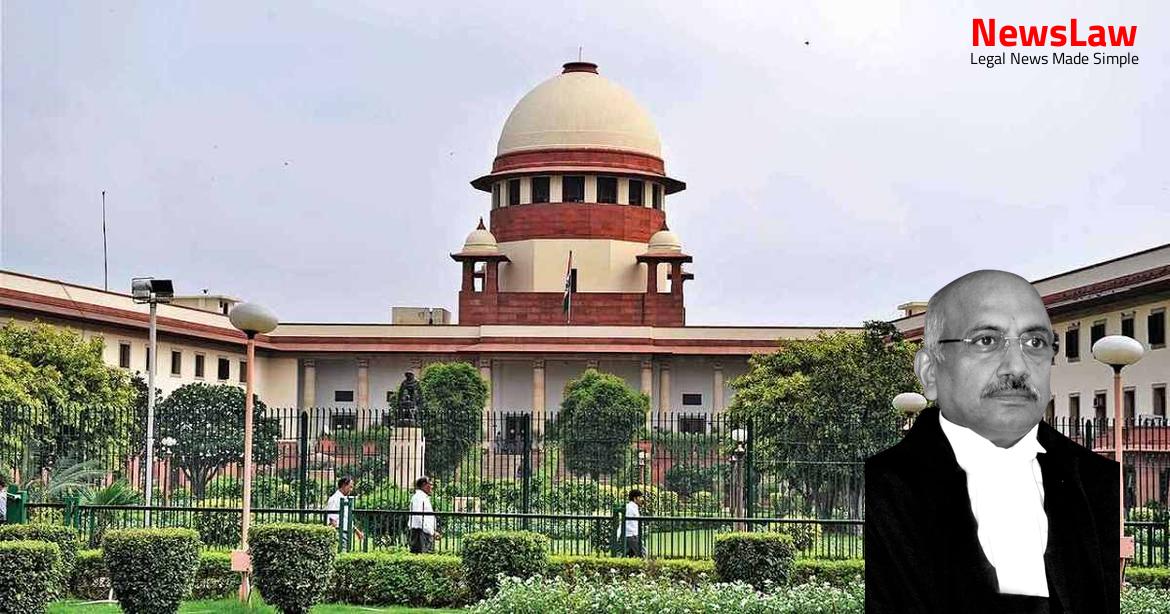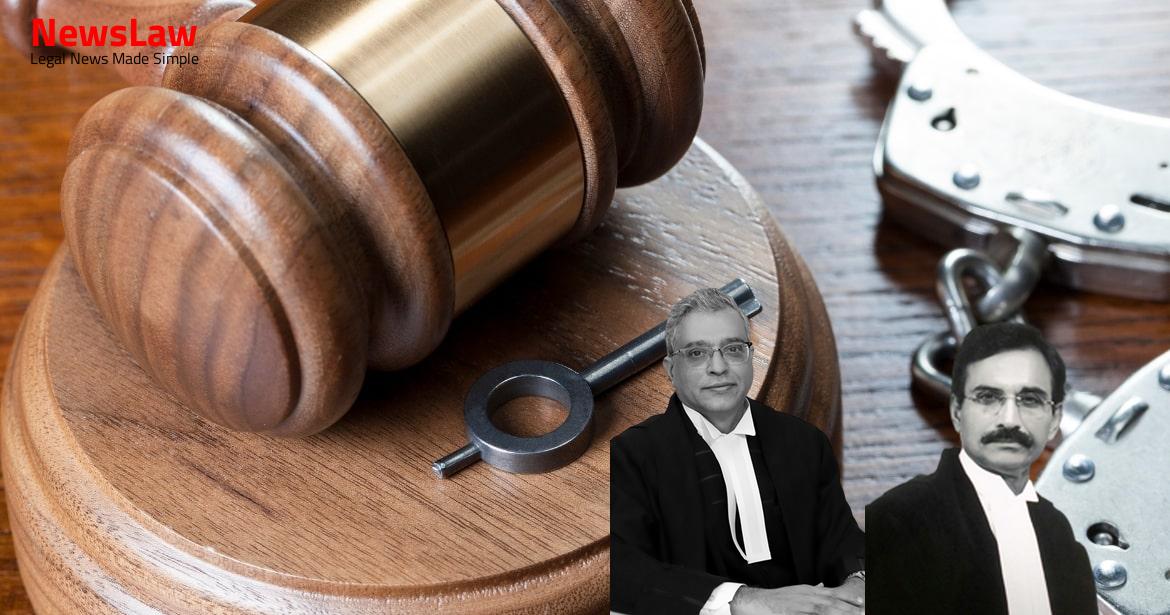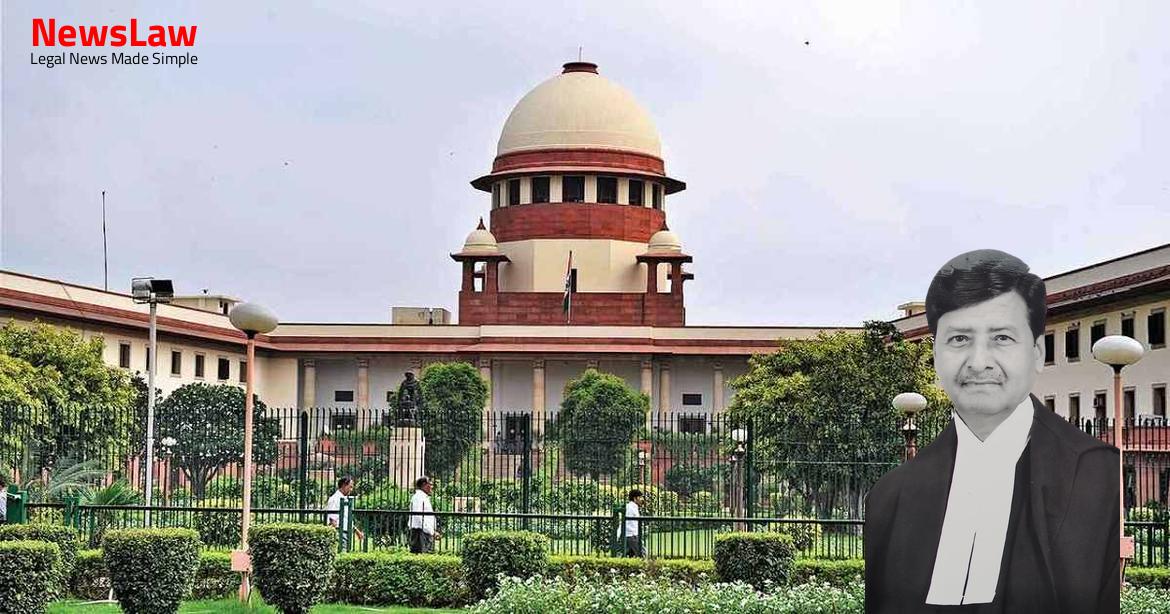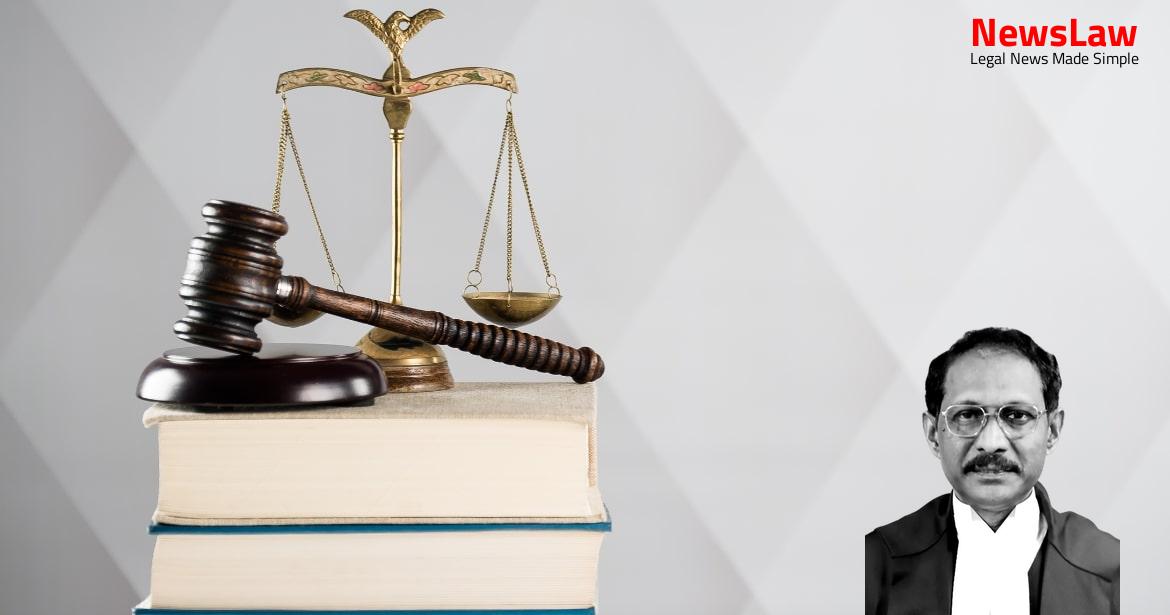In a recent legal case, the court delved into the complex issue of land tenancy disputes and the critical role of documentary evidence in determining the truth. The court highlighted the importance of statutory presumptions and the burden of proof in such cases. Stay tuned to understand the nuances of the legal analysis in land disputes.
Facts
- The defendant was rendering accounts and being paid 10% management charges of the income of properties.
- The defendant was required to maintain a register for keeping the account of income and expenditure, as well as an inventory of the plaintiffs’ property.
- Plaintiff No 1 claimed to be the ex-ruler of an erstwhile princely state of Dhami and had been getting his property managed through various persons.
- Allegations of misfeasance by the defendant led to the termination of the agency relationship by the plaintiffs.
- The defendant claimed to be a tenant and asserted that the suit should be triable by the Revenue Court.
- The defendant mentioned paying half Galla batai in respect of land measuring 13 Bighas 2 Biswas for the last 12 years.
- The learned Additional District Judge allowed the appeal after remand, citing inadequate information in the pleadings regarding the tenancy and its terms.
- Plaintiffs filed the suit seeking permanent injunction, mandatory injunction, and possession of 8 plots of land measuring 13 Bighas 14 Biswas.
- Plaintiffs produced revenue records as evidence of ownership of the disputed property.
- The assertion of the plaintiffs was that the defendant was appointed as a Manager to manage the property and was required to render accounts twice a year after each crop harvest.
- Plaintiffs were found to be owners of the suit land.
- Defendant was in possession of 13 Bighas 2 Biswas as a tenant.
- Decree for prohibitory injunction granted, except for land in possession of defendant as tenant.
- First appeal against judgment allowed by District Judge.
- Second appeal by defendant remitted to First Appellate Court to examine specific questions.
Also Read: Interpretation of Mandatory Statutory Time Limits
Arguments
- The defendant has made an assertion numbered as 2 5.
- The trial court framed 12 issues, with Issue No. 3 being relevant for the appeal.
- Issue No. 3 reads as follows: …
- Several witnesses testified that they were paying rent on behalf of the defendant.
- Iqwal Ali claimed possession before the defendant became a tenant, while Tulsi Ram and Gosaun collected rent for the plaintiffs.
- The trial court found that the presumption of truth to the revenue record was rebutted based on the oral evidence presented by the defendant.
- The defendant presented witnesses, including Iqwal Ali and Tulsi Ram, to support their claim of being a tenant on payment of one half Galla batai.
Also Read: Challenging Legal Analysis in Acquittal Reversal
Analysis
- Entries in revenue record such as Jamabandi and Khasra Girdawari carry presumption of truth per Himachal Land Revenue Act, 1954.
- High Court emphasized the importance of record-of-rights in determining tenancy and relationship between parties.
- Burden of proving the relationship of landlord and tenant was on the defendant.
- Presumption of truth attached to revenue record can only be rebutted by evidence of impeccable integrity and reliability.
- Statements recorded in revenue proceedings are not per se admissible in evidence.
- Correcting entries in record-of-rights can be sought through the Civil Court in Himachal Pradesh.
- Witness testimony can be used to confront previous statements made under oath.
- Burden of proving the relationship of landlord and tenant shifts depending on the circumstances.
- Importance of documentary evidence over oral testimony in determining land ownership and tenancy.
- Summary proceedings before a Revenue Officer for corrections in revenue records are of a summary nature.
- In Kumar Exports v. Sharma Carpets, the court discussed the presumption of fact in cases under Section 138 of the Negotiable Instrument Act.
- Merely denying the passing of consideration and debt existence may not shift the burden of proof to the accused.
- Entries in revenue records are generally accepted at face value, but the presumption of correctness applies only to genuine entries.
- The presumption can be rebutted in case of forged or fraudulent entries, or if the prescribed procedure was not followed.
- The court in various cases emphasized the importance of documentary evidence over oral evidence to rebut statutory presumptions.
- In cases like Guru Amarjit Singh v. Rattan Chand, non-production of rent receipts indicated the absence of a landlord-tenant relationship.
- Under Section 28-B of the U.P. Sales Tax Act, entries in the Jamabandi carry a rebuttable presumption of truth.
- Evidence like a lease deed may be produced, but the lack of rent payment records can weaken the claim of the relationship between parties.
- The defendant has not presented any reliable documentary evidence to dispute the presumption of truth regarding the tenant relationship.
- The evidence provided by the defendant is not considered trustworthy or cogent enough to prove the tenant relationship.
- Due to the lack of credible documentation, the presumption of truth regarding the tenant relationship remains unchallenged.
Also Read: Reservation Shortfall for Hindu Nadar Community
Decision
- The appeal was allowed
- The order of the High Court was set aside
- The judgment and decree passed by the First Appellate Court was affirmed
Case Title: SHRI PARTAP SINGH (SINCE DEAD) THR HIS LRS. . Vs. SHIV RAM (SINCE DEAD) THR LRS. (2020 INSC 219)
Case Number: C.A. No.-001511-001511 / 2020



